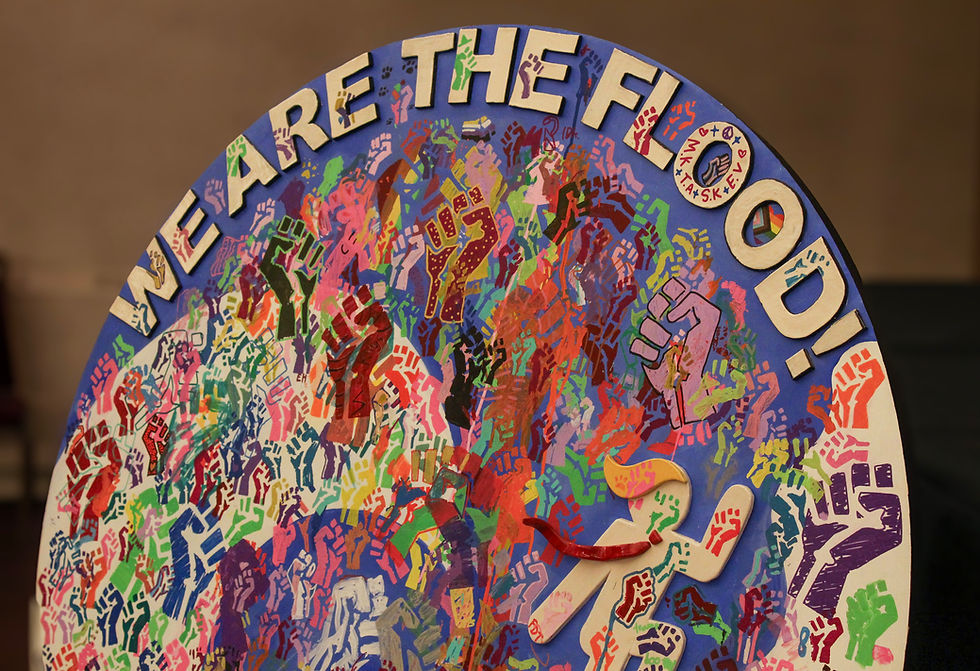Public commentary at ‘ASWU and Admin’ event prompts further changes to student demonstration policies
- Karmen Zhao, Staff Writer
- Nov 6, 2024
- 3 min read

On Oct. 3 from 3 to 4 p.m., the Associated Students of Willamette University (ASWU) coordinated an “ASWU and Admin” event with Lisa Landreman, the vice president of student affairs, in the Bistro. The event allowed students to provide commentary and feedback about the new campus demonstration policies.
In this meeting, student public commentators questioned many of the restrictions addressed in the policies, such as the restrictions of student demonstrations on athletic fields. Landreman explained that this policy was not intended to restrict student demonstrations on the field, but was meant to allow athletes to freely practice and compete. Landreman stated that the policy will be nuanced to better explain that student demonstrations on athletic fields would lead to National Collegiate Athletics Association (NCAA) consequences first before university or athletic department administers consequences.
When questioned by Zander Huston (’24), a member of Willamette’s Students for a Democratic Society (SDS), about the purpose of Willamette’s demonstration policies, Landreman expressed that the policies were put in place to “allow people to make informed decisions and to protest feely with their voices heard without risk of arrest.” She communicated that while the university recognizes that there are rights and opportunities for people to express their voices through protest, “it cannot interfere with students’ rights to get to class, their rights to sleep, their rights to study, their rights to eat,” or “normal activities” as addressed in the policies.
ASWU senator Mitchell Septoff (’26) voiced a concern in reference to last year’s Palestine and Gaza protests, bringing up the point that many students chose not to participate because of the concern that the university would find them in violation of a policy they were not aware of.
In response, Landerman clarified that no student at Willamette has yet lost their scholarship due to participation in student activism. “There’s not those kinds of consequences. We don’t remove people’s scholarships … but we can more clearly state that [in the policy],” Landreman said.
Landreman also stated that it will no longer be a requirement to give the Office of Student Affairs a 48-hour notice before student demonstrations. Regarding posting policies, she clarified that individuals who want to post posters must drop them off at the distribution office located in the SEAL office to be sent through the distribution route. Registered student organizations are allowed to post their content without needing to go through that process. Students are also able to post on their own doors but not the doors of others. Additionally, sidewalk chalking will be allowed but will be washed away if it violates any university policies. Finally, she added that students are allowed to hand out flyers, but they should be mindful of not creating an intimidating or hostile environment for passing students.
The meeting concluded with Landreman stating that she will summarize the public feedback from the ASWU meeting and will discuss possible changes with the university leadership team made up of academic deans.
Inéz Nieves (’25), an active voice in student affairs, said, “This was probably the most productive discussion on campus that I’ve ever been involved in, but that isn’t possible without the work of admin trying to understand students.” She hopes that the university administration will be able to understand that students have put in genuine work trying to ensure that campus culture is less reactionary and more productive. Septoff also provided an end statement, saying, “The university always has power to do what they want. Students are the ones that are hurt by passive policy.”
The weekly ASWU senate meeting met in the same afternoon at 7 p.m. in Montag Den and feedback was debriefed from the ASWU and Admin public commentary from earlier that day.
As of Oct. 18, in an update interview with Landreman, she stated that she was nearly finished reviewing and making changes to the posting policies based on all the public commentary feedback received. However, certain changes would have to be further discussed with “staff that oversee posting and the leadership team” because not all these decisions could be made unilaterally. Most of the changes made were minor clarification changes, and according to Landreman, she was about to begin reviewing the campus demonstration policies after the posting policies were complete.
In the interview, Landreman clarified that the posting policies did not begin as a university policy and that it had lived within the SEAL office. It was not until PNCA merged with Willamette that the policies became a university policy instead of a department policy. “This isn’t a new policy. It’s just one we’re bringing out from a department into university light,” said Landreman.
Regarding how long the final policies will take to be announced, Landreman said, “This process is really important and takes time, so I certainly want to give it our due diligence.” There is no estimate of when these final policies will be published.




Comments